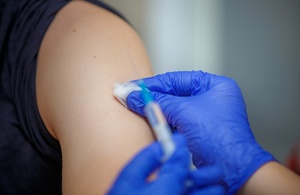Local COVID alert level update for Carlisle
After discussions with local leaders, Carlisle will move from local COVID alert level medium to local COVID alert level high from 00.01 Saturday 31 October.
This means that for these areas, the following measures will be in place:
- people must not meet with anybody outside their household or support bubble in any indoor setting, whether at home or in a public place
- people must not meet in a group of more than 6 outside, including in a garden or other space
- people should aim to reduce the number of journeys they make where possible; if they need to travel, they should walk or cycle where possible, or plan ahead and avoid busy times and routes on public transport
These measures will be reviewed every 14 days to consider whether they are still appropriate.
The rate of COVID-19 infections is rising rapidly across the UK. The weekly case rate in England stood at 226 people per 100,000 from 18 October to 24 October, up from 100 people per 100,000 for the week 25 September to 1 October. Cases are not evenly spread, with infection rates rising more rapidly in some areas than others.
In Carlisle, weekly case rates stand at 233 people per 100,000. This increases to 244 per 100,000 in those aged 17 to 21 and is 206 per 100,000 in the over 60s.
All available data has been assessed by the government, including the Health and Social Care Secretary, NHS Test and Trace, the Joint Biosecurity Centre (JBC), Public Health England (PHE), the Chief Medical Officer and the Cabinet Office. Data assessed includes incidence, test positivity and the growth rate of the virus.
It is essential that outbreaks are contained to protect lives and our NHS, and prevent greater economic damage in the future. The country faces a new challenge as winter approaches, and even mild cases of COVID-19 can have devastating consequences for people in all age groups, along with the risk of long COVID.
The government’s strategy is to suppress the virus while supporting the economy, education and the NHS, until an effective vaccine is widely available.
Local action is at the centre of the government’s response, and engagement with local authorities is, and will continue to be, a key part of this process.
More information on what local COVID alert level high means for your area can be found on GOV.UK.
On 12 October, the government introduced a new, simplified framework for local interventions based around 3 new local COVID alert levels.
The postcode checker shows which alert level applies in each area.
The NHS COVID-19 app will also direct people to this information.
We have provided £3.7 billion of funding to local authorities in England to respond to pressures in all their services.
The Prime Minister also announced on Monday 12 October additional COVID funding of around £1 billion which will provide local authorities with additional money to protect vital services. The government will set out further information in due course on how this new funding will be allocated.


